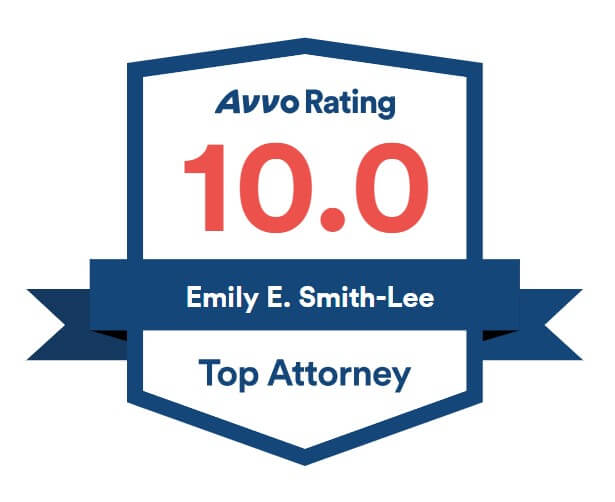Maximizing the Value of Vendor Contracts: Key Considerations
Mastering Vendor Contracts: Key Factors to ConsiderMany vendors you use in your business are large enterprises with standard form contracts that you have little control over. Others, like website, marketing, design, or other customized products or services, come with an opportunity for you to negotiate key terms and conditions.
Paying attention to these essential terms at the outset not only protects you legally but can help give you tools in your vendor and contract management throughout the life of the agreements. Below are some key issues you should consider before signing a contract with a vendor of products or services. Termination Provisions in Vendor ContractsUnderstanding how long your commitment to the vendor is vital. If you need to end the relationship because of cost or a business issue on your end, you want to be sure you have a way to do that without incurring a penalty.
If the offer requires you to commit for a period of time, you should try to negotiate terms that allow you an early exit if the vendor is not meeting your reasonable expectations. Scope of Work in Vendor ContractsYour vendor agreement should be clear about the scope of work you are contracting for, and any specific deliverables you are expecting. This is just good business in the first place, as people are more likely to live up to agreements they understand.
It is also important to protect your legal rights. For example, if you believe you should not have to pay because a product or service was not delivered as expected, you will have a much better chance of prevailing in that position if you can point to something specific that was missed. Often a vendor will have a standard service contract with their full set of legal terms and conditions and a separate, shorter statement of work that is specific to their agreement with you. You are not likely to be able to negotiate the terms of their master service agreement. This "fine print" can be important, though, if things go badly, so you should read and understand it and get legal advice if needed. Intellectual property in vendor contractsIf the product or service you're purchasing includes any creative work, you should consider how the legal documents address ownership of that creative work.
A good example is a graphic design business or a web designer. When you hire someone to create an image, artwork, or website, under common law principles they own the rights to that work. They may have a good reason to want to restrict use, but you have the right to expect that you will be able to use it for what you paid for without a claim that you are violating their rights. You should be sure that the vendor contract at least gives you the explicit right to use the work for the application or platform it was commissioned for. If you want to be able to take something like a logo and use it in multiple places or as the basis for new images, you should be sure either that this permission is clear in your agreement or that the agreement gives you all rights to the work. Confidential information in vendor contractsWorking with the vendor may involve sharing confidential information, or receiving confidential information from them. Most commonly, the parties agree to some form of mutual nondisclosure to ensure that information needed for the engagement is not later used for something else or shared with competitors.
|
We're Here to Help.OR
|
Questions About Your Contracts With Vendors or Other Businesses?
Our Solutions Roadmap is a quick and easy way to share the details of what you are facing and receive preliminary feedback from a member of our team. Use the button below to get started- it is 100% confidential and 100% free.
Dispute resolution in vendor contracts
If your agreement is silent on this, either party will have the right to go to a court of competent jurisdiction if they feel the other party has breached the agreement. This may be acceptable to you. The parties can also agree to a provision that requires the parties to attempt to mediate a dispute before going to court, or one that requires all disputes to be handled in arbitration.
If you are interested in an alternative dispute resolution provision, you should be clear about the difference between mediation and arbitration. Mediation means attempting to settle voluntarily and is non-binding. Arbitration is a binding legal proceeding in which a private judge, called an arbitrator, makes the final decision. If you are going to include a dispute resolution provision, it is a good idea to consult with a business lawyer to make sure you are really getting what you want.
If you are interested in an alternative dispute resolution provision, you should be clear about the difference between mediation and arbitration. Mediation means attempting to settle voluntarily and is non-binding. Arbitration is a binding legal proceeding in which a private judge, called an arbitrator, makes the final decision. If you are going to include a dispute resolution provision, it is a good idea to consult with a business lawyer to make sure you are really getting what you want.
When to seek legal advice
You probably don't need to call a lawyer every time you click on the "I agree" button to a software license, or sign up for phone or internet service. These contracts include terms that are notoriously non-negotiable, and your decision is really whether the product or service is worth the cost and risk.
If you are making a large or unusual investment, however, you may want to get advice from a business lawyer before proceeding.
If you are making a large or unusual investment, however, you may want to get advice from a business lawyer before proceeding.
Meet Our Business Attorneys

Emily Smith-Lee is the owner and founder of slnlaw. She is a 1996 graduate of Boston College Law School. She was previously a partner at the Boston office of a large international firm, where she worked for thirteen years with a focus on business litigation. In 2009, she started the firm that since became slnlaw, and has grown it from a solo practice to a five-attorney firm with multiple practice areas. She has been recognized as Massachusetts Superlawyer each year since 2013, and in 2018 earned recognition as one of Massachusetts Lawyers Weekly's Lawyers of the Year. She has written a book on employment law: Rules of the Road, What You Need to Know About Employment Laws in Massachusetts, and helped hundreds of small business owners with contracts, business transactions, employment law advice, business incorporation, and risk management. She has also litigated business disputes in state and federal courts.

Rebecca Rogers: Rebecca is a 2006 graduate of Boston College Law School, and has worked with slnlaw since 2013. She previously worked as an intellectual property litigation attorney for Fish & Richardson in Boston, Massachusetts, and clerked for the Massachusetts Supreme Judicial Court. Rebecca has helped clients with business contracts, employment contracts, and employment law advice.

Jenna Ordway: Jenna is a 2013 graduate of Quinnipiac Law School, and also earned an LLM in Taxation from Boston University in 2015. She has been affiliated with slnlaw since 2011, first as a law clerk and then as an attorney. Jenna has been recognized since 2019 as a "Rising Star" by Massachusetts Superlawyers. Jenna has helped many small business owners with simple and complex business incorporation, contract review, advice and analysis regarding business disputes, employment law advice, and advice about business succession considerations as part of estate planning.

Elijah Bresley: Eli is a 2014 graduate of Seton Hall Law school, and has worked with slnlaw since 2020. He previously worked for a boutique employment law firm outside of Boston, and then for the Labor and Employment department of a large Boston firm. He also spent a year clerking for the judges of the Superior Court in Hartford, Connecticut. Eli has helped our small business clients with employment law advice and defense of employment-related lawsuits in MCAD and state and federal courts.

Sharleen Tinnin: Sharleen is a 2010 graduate of Northeastern University School of Law, and has been with slnlaw since 2023. Prior to joining slnlaw, she worked with King, Tilden, McEttrick & Brink, P.C. on complex civil litigation matters. She previously worked for the United States Department of Justice, and received an "Excellence in Justice" award in 2017. Sharleen has helped clients litigate business disputes in state and federal courts, and advised business owners about succession considerations as part of their estate planning.
How We Can Help
Our experienced team can guide you through the complexities of vendor contracts, ensuring you negotiate favorable terms while minimizing potential risks to your business. Whether you're dealing with termination provisions, scope of work, intellectual property, confidentiality, or dispute resolution, we've got the expertise to help you make informed decisions and protect your interests.
You can use the button below to schedule a free information call, or simply give us a call at (781) 784-2322.
You can use the button below to schedule a free information call, or simply give us a call at (781) 784-2322.
|
Emily Smith-Lee Rated by Super Lawyers loading ... |
Jenna Ordway
Rated by Super Lawyers loading ... |


